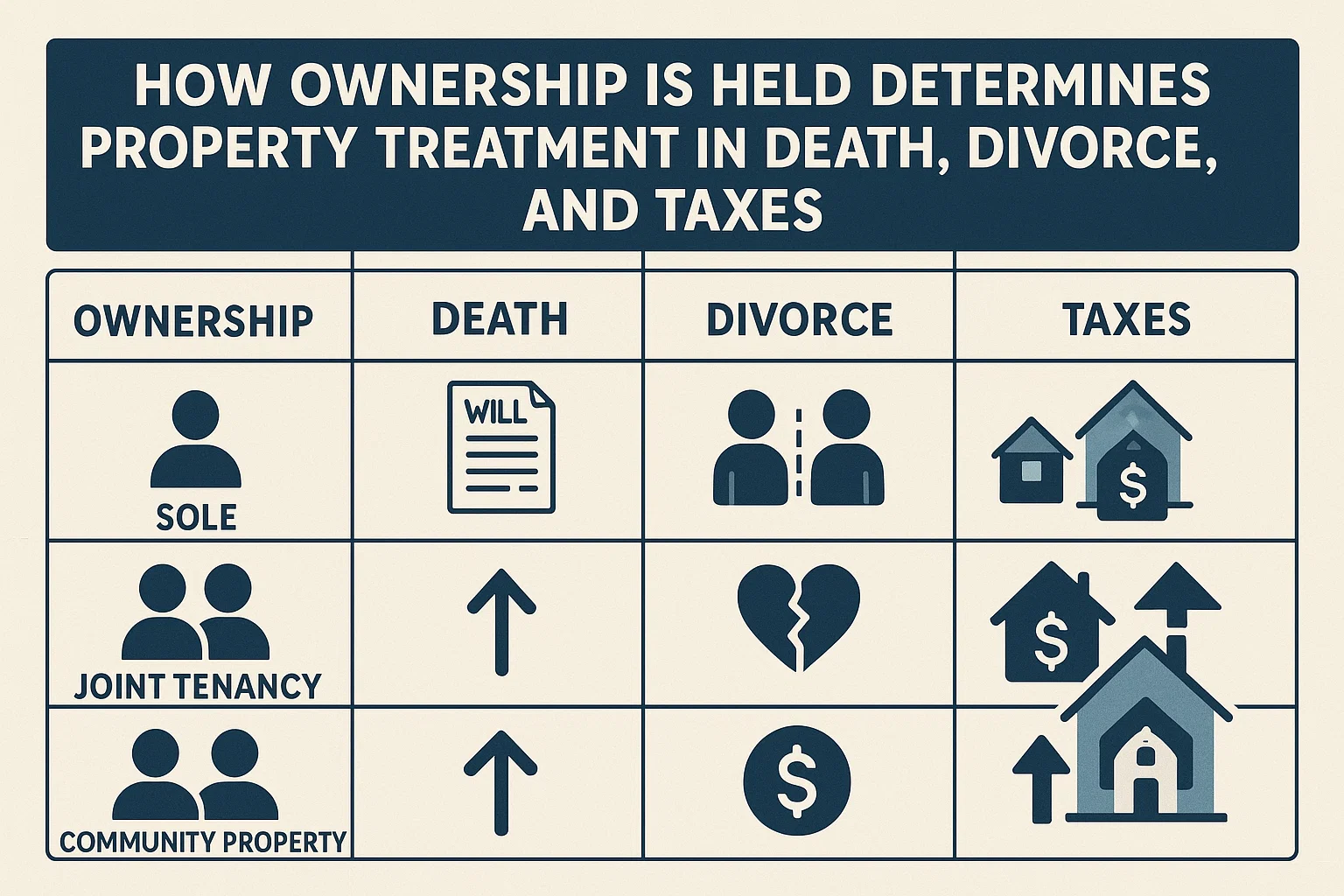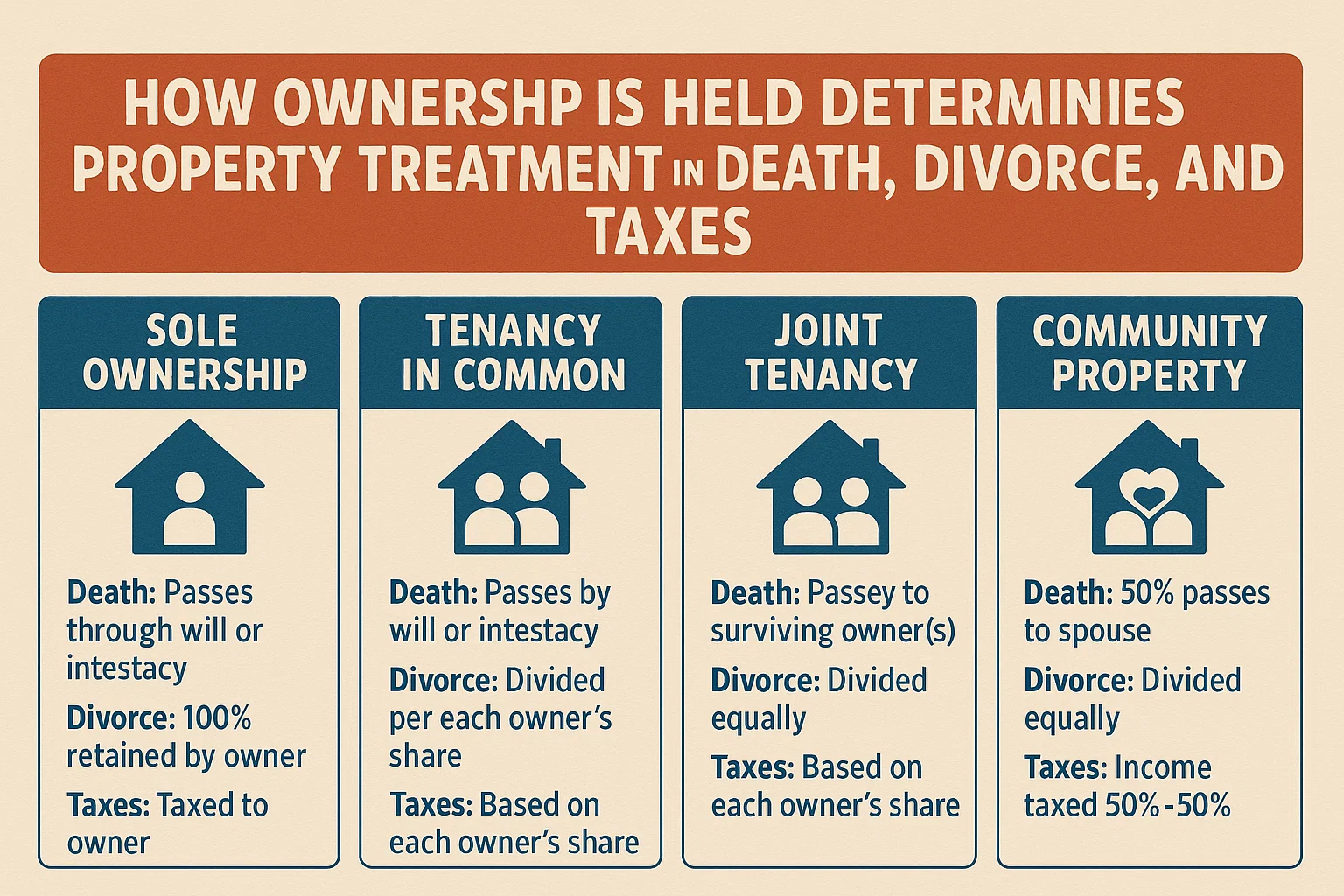How Ownership is Held Determines Property Treatment in Death, Divorce, and Taxes

How Ownership is Held Determines Property Treatment in Death, Divorce, and Taxes
The manner in which you hold title to your property has significant legal and financial ramifications. It impacts how the property is treated in the event of death or divorce, as well as the amount of taxes that might be incurred. Despite its importance, many buyers overlook this decision until it is too late.
Sales agents often do not inquire about title preferences, instead using vague language like “as above” in contracts. While some title attorneys or escrow agents may raise the question at closing, this late-stage timing leaves little room for informed deliberation. Given the gravity of this decision, it is critical to research your options early and consult professionals.
Key Methods of Holding Title
Tenancy by the Entirety
Available only to married couples, this option grants both spouses equal ownership and automatic survivorship rights. Key features include:
- Creditor Protection: Individual creditors of one spouse cannot place liens on the property.
- Probate Avoidance: The surviving spouse inherits the property immediately without court delays.
- Stepped-Up Basis: The surviving spouse’s tax basis adjusts to the property’s fair market value at the time of death.
Tenancy in Common
Owners hold distinct, transferable shares (not necessarily equal). Important considerations:
- No Survivorship Rights: Shares pass via wills or probate, not automatically to co-owners.
- Creditor Vulnerability: Individual ownership percentages are exposed to personal debts.
- Tax Flexibility: Strategic allocation of shares can minimize capital gains taxes for heirs.
Joint Tenancy with Right of Survivorship
Similar to tenancy by the entirety but lacks creditor protection. Key aspects:
- Automatic Inheritance: Surviving co-owners inherit shares without probate.
- Equal Ownership: All parties hold equal shares unless legally contested.
- Binding Transfers: Ownership cannot be redirected via a will—only to the surviving joint tenant.
Sole Ownership
Held entirely by one individual, offering full control but fewer protections:
- No Probate Avoidance: The property becomes part of the owner’s estate.
- Exposure to Creditors: Fully vulnerable to liens or judgments against the owner.
- Post-Marriage Clarity: Spouses or ex-spouses have no automatic claims.
Trusts
Revocable living trusts are a popular option for real estate:
- Control and Privacy: The grantor can manage the property while avoiding probate.
- Flexibility: Terms can be adjusted during the grantor’s lifetime.
Community Property
Recognized in select states, this applies to assets acquired during marriage:
- Survivorship Benefits: Surviving spouses inherit the full property at a stepped-up basis.
- State-Specific Rules: Laws governing inheritance and divorce vary significantly.
Important Note: The information above is not legal advice. Laws differ by state, and consultation with an estate planning attorney is strongly recommended to determine the best approach for your circumstances.


